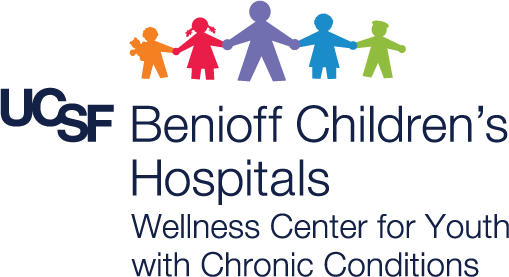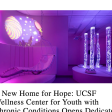Jan Yeager, a Service Designer with the UCSF Clinical Innovation Center, has been helping us design the UCSF Child & Adolescent Chronic Illness Center. Her presentation was recently accepted for the upcoming Health Experience Design (HXD) Conference on April 6, 2021. Please see summary below of the presentation:
Achieving life-long wellness for pediatric patients growing up with chronic illness
A healthcare system designed for acute care doesn’t work very well for children and adolescents who are chronically ill. This presentation highlights a transformative approach to chronic illness care that is currently under development at UCSF. By definition, children with chronic illness will never be cured. They will carry their chronic disease to adulthood, and many will develop secondary morbidities as they age adding to their already complex medical needs.
Chronic illnesses require care management by multiple specialists in multidisciplinary clinics. There is little coordination across clinics in delivering ancillary services such as case management, psychosocial support and mechanisms to support smooth transition to adult care resulting in variable access to these important services. Caregivers as de facto coordinators are ill-equipped to navigate this fragmented system and fill in gaps. Coping with the complexity of the present makes it hard to think too far beyond averting the next medical crisis.
The Chronic Illness Center for Children and Adolescents (CIC) takes the long view of care with a service platform centered around optimizing the future health of these young patients with important adjuvant care that is not currently systematically provided at UCSF. Existing services will be augmented by providing a specialized component of anticipatory guidance that is specific to the child’s chronic illness. An example is integration with adolescent medicine to address reproductive health needs in the context of chronic disease management.
Human-centered design methods are an integral part of this work in progress. The effort brings together patients, caregivers, UCSF physicians and clinicians, and community providers applying experience principles to design: the center as a service, a physical space, and a ‘living’ personalized needs assessment that will guide patients to wellness services. The needs assessment will serve as ‘case study’ for this collective co-creation and design learning experience.
Please click here to learn more about this conference





